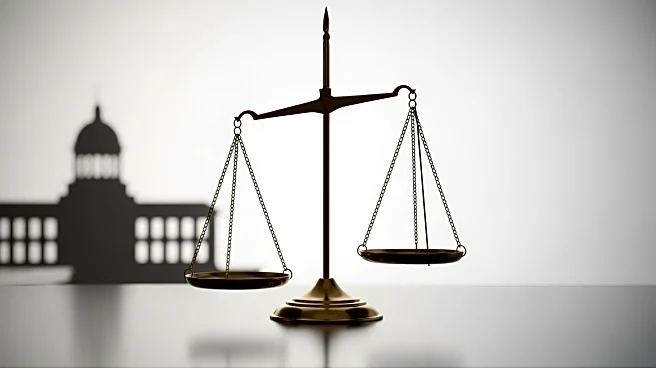What's Happening?
Exxon Mobil has filed a federal lawsuit against California, challenging two state laws that mandate large companies to disclose their greenhouse gas emissions and climate-related financial risks. The lawsuit,
filed on October 25, 2025, argues that these laws violate Exxon’s First Amendment rights by compelling the company to communicate ideas it opposes. The laws in question, SB 253 and SB 261, require companies with significant revenue in California to report detailed emissions data and climate-related financial risks starting in 2026. Exxon contends that these requirements unfairly target large companies and force them to speculate on future developments, which the company finds misleading and counterproductive.
Why It's Important?
This legal challenge by Exxon Mobil is significant as it tests the boundaries of state-mandated climate disclosures and their intersection with corporate free speech rights. The outcome of this lawsuit could have broad implications for how climate-related information is reported by major corporations, potentially influencing public policy and corporate transparency standards across the U.S. If Exxon succeeds, it may set a precedent that could limit state powers in enforcing environmental regulations, impacting stakeholders such as environmental groups, investors, and other large corporations. Conversely, if California prevails, it could strengthen the state's position as a leader in climate policy and transparency.
What's Next?
The lawsuit is expected to proceed through the federal court system, with potential implications for similar laws in other states. Stakeholders, including environmental advocates and business groups, will likely monitor the case closely, as its outcome could influence future legislative efforts and corporate strategies regarding climate disclosures. The legal proceedings may also prompt discussions on balancing corporate speech rights with public interest in environmental transparency.
Beyond the Headlines
This case highlights the ongoing tension between state-led climate initiatives and corporate interests, reflecting broader debates on environmental responsibility and regulatory reach. It underscores the challenges in aligning corporate practices with evolving public expectations on climate accountability, potentially influencing long-term shifts in corporate governance and environmental policy.










